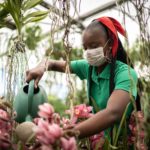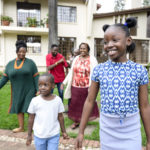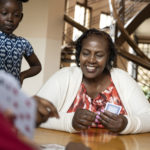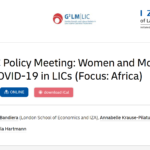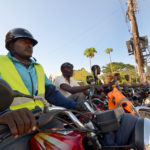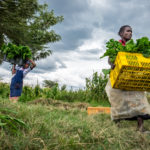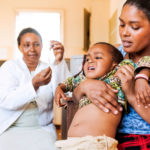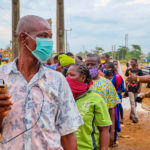While growth has taken off in sub-Saharan Africa (SSA) in recent decades, the structural transformation of its economies is still lagging far behind that observed in other previously low-and-middle-income regions across the world. At the same time, SSA is undergoing a unique fertility transition: the decline in the number of children born per woman is…
Female Wage Labour and Fertility
Improving Childcare Quality through Social Franchising
Access to high-quality childcare is central to advancing women’s economic and social agency while promoting children’s development. However, in many LMICs, childcare markets are largely informal, with care often provided in unregulated home-based settings. As a result, childcare is often of poor quality, while also being unprofitable and unaffordable. Mothers typically bear the burden of…
Occupational Segregation and Gender Gaps in Nairobi
We study the interlinked role of beliefs, preferences, and search by workers and firms in driving occupational segregation and wage inequality for women in Nairobi, Kenya. Our project address four questions within this agenda: (1) (How) do employers treat women and men differently in the hiring process? (2) (How) do men’s and women’s preferences over…
Women’s Employment and Family Decisions in Sub-Saharan Africa
Our project studies the role of the public sector and the opportunities it can provide for women’s employment and the gender pay gap in low-income countries (LICs). Using the preliminary evidence from microdata for a number of SSA countries, we show that the public sector in poor economies behaves very differently from private firms: it…
G²LM|LIC Policy Meeting: Women and Mothers during COVID-19 in LICs (Focus: Africa)
G²LM|LIC COVID-19 Research Meeting
Tracking the Value of Time of Informal Sector Workers during and Post-Curfew in Nairobi, Kenya
Covid-19 is already having widespread consequences in Nairobi, Kenya including the loss of earnings and starvation. Anecdotal evidence suggests that there is considerable heterogeneity. For example, vendors who can still sell essential goods have been less impacted, while some others have completely lost their earnings. Women have fared disproportionately worse, with higher incidences of job…
Taming Counterfeits Markets with Consumer Information
Access to quality inputs is critical for boosting agricultural productivity. However, quantitative research (Tjernström et al., 2017; Bold et al., 2017; Ashour et al., 2019) and news reports (Muchiri, 2019; Okinda, 2019) have documented that the quality of agricultural inputs—such as seeds, fertilizer, and pesticides—is often low in rural African markets. The inability of buyers…
Gender Effects of COVID-19: Evidence from the Kenya Life Panel Survey
Governments in many countries are implementing social distancing measures to reduce the spread of COVID-19, yet there is limited evidence about the effectiveness of these measures in low-income contexts. This is particularly true of travel restrictions/lockdowns; this, plus school closures, are likely to have major labor market implications, and potentially differential effects by gender. The…
Gender Differences in the Effects of the ‘Great Lockdown’ on Time Use
This research will address whether and how the coronavirus pandemic exacerbates barriers to gender parity in developing countries by asymmetrically affecting time use for men and women. The effects of COVID-19 are likely to differ by gender (Alon et al., 2020), but the nature and extent of those differences are uncertain. The study, therefore, proposes…
